Question And Answer
Publications
Articles, publications, books, tools and multimedia features from the U.S. Institute of Peace provide the latest news, analysis, research findings, practitioner guides and reports, all related to the conflict zones and issues that are at the center of the Institute’s work to prevent and reduce violent conflict.
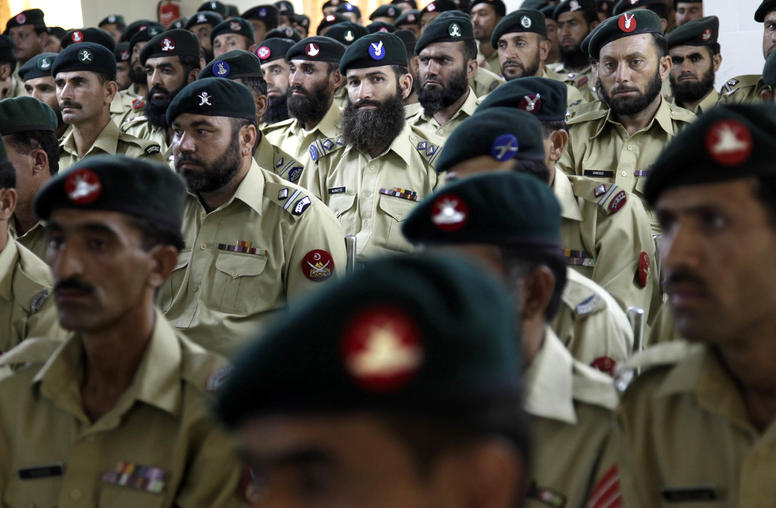
Five Key Issues Facing Pakistan’s New Army Chief
Pakistan just underwent a major military transition. Last week, Prime Minister Shahbaz Sharif appointed General Asim Munir as the new chief of the country’s powerful army, succeeding Qamar Bajwa who held the position for six years. Munir is a former chief of Pakistan’s powerful intelligence service, the Inter-Services Intelligence (ISI), and before that the head of the country’s military intelligence. In nuclear-armed Pakistan with the world’s fifth largest military and a history of military rule, the army chief tends to be the most powerful leader — at times even perceived as the de facto leader due to significant influence over Pakistan’s domestic and foreign policies.

Tamanna Salikuddin on Pakistan’s New Military Chief
General Asim Munir was appointed as the new head of Pakistan’s military this week — a position often viewed as the de facto leader of the country. Amid a fraught political environment, Munir’s “first job is going to be figuring out what the civil-military balance is in Pakistan,” says USIP’s Tamanna Salikuddin.
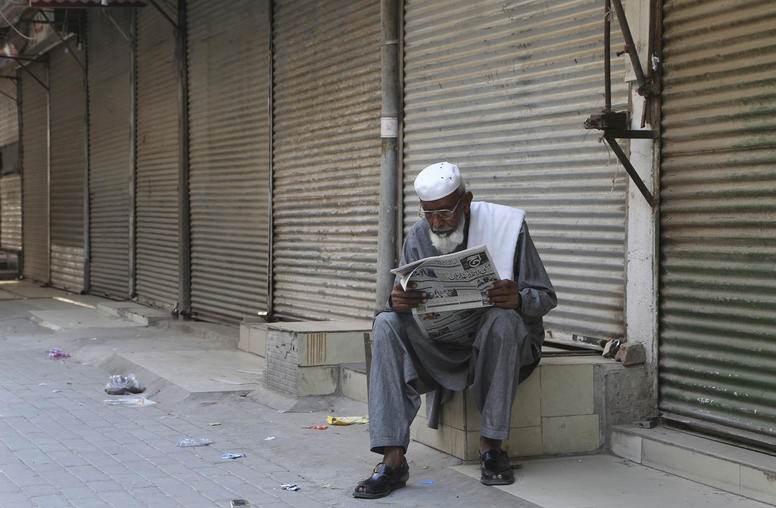
Losing Facts to Fiction: Nationalism, Misinformation, and Conspiracy Theories in Pakistan
Misinformation and conspiracy theories have become staples of mainstream politics in numerous countries around the world—democracies and autocracies alike. Pakistan is no exception. This report examines the causes of pervasive belief in misinformation in Pakistan—particularly nationalistic misinformation—and the consequences for the country’s relations with its neighbors, the risk of international or domestic conflict, and attitudes toward Pakistan’s many ethnic minority groups. The report also discusses steps that policymakers can take to counteract misinformation.
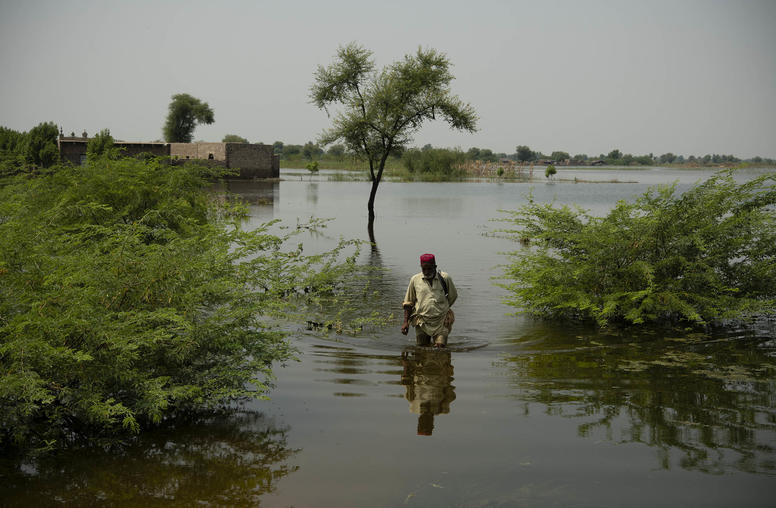
Pakistan’s Roadmap for COP27: In Search of a Strategic Vision
The international community has gathered this week in Egypt for the U.N. Climate Change Conference (COP27) and will be discussing a range of issues including loss and damage, climate finance, adaptation, and mitigation over the next two weeks. This year’s COP27 is being held in the aftermath of Pakistan’s disastrous summer floods, which led to the announcement that Pakistan’s Prime Minster Shahbaz Sharif will serve as vice-chair of the summit.
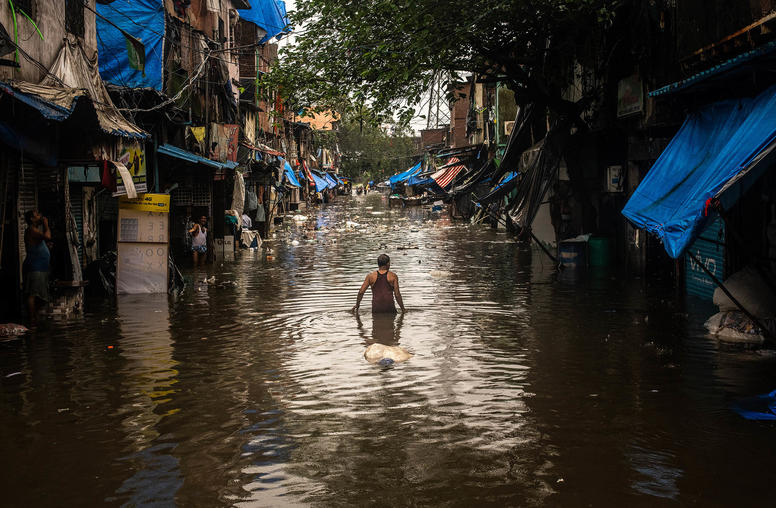
It’s Time for South Asia to Talk Climate
That India and Pakistan are engaged in backchannel track 2 diplomacy is the worst kept secret in South Asia. It does not take a vivid imagination to guess what dominates the agenda at these talks: Kashmir, terrorism, trade, perhaps crisis behavior under the shadow of nuclear weapons. Welcome as such conversations are, they are almost assuredly lacking focus on the biggest crisis facing the region’s inhabitants: climate change.
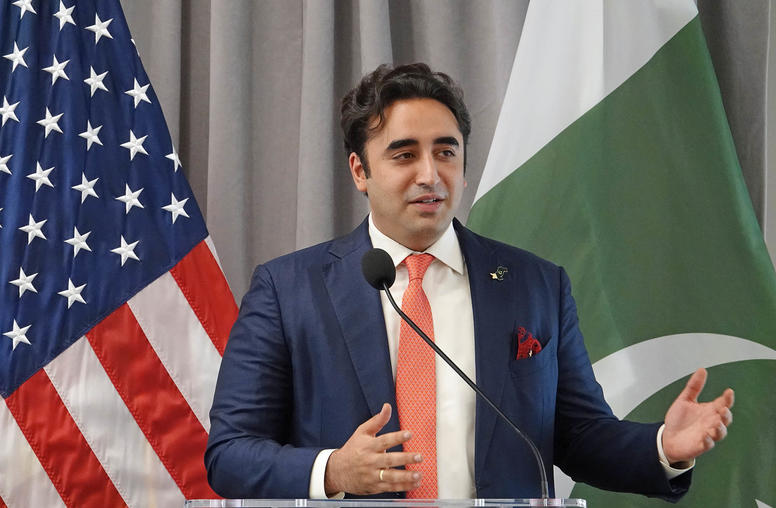
Pakistan Presses U.S. to Lead Global Response to Climate Disasters
Pakistan’s unprecedented flood disaster is a wakeup call for governments and international institutions on the need to build a worldwide response to the disproportionate burden of climate change on nations of the Global South — a challenge that Pakistan’s foreign minister underscored to U.S. officials and foreign policy analysts Wednesday at USIP. Bilawal Bhutto Zardari urged policymakers to lead an international effort to use the Pakistan crisis as a catalyst for a more effective international effort to help the countries most vulnerable to climate change.
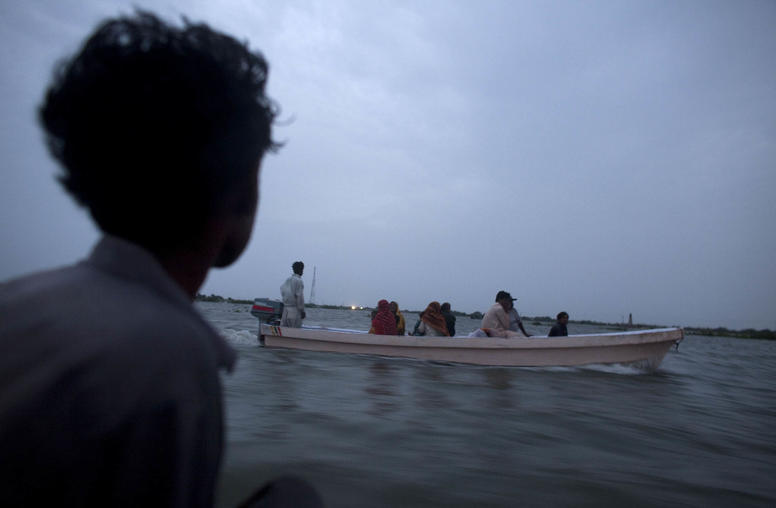
Why Pakistan Is Drowning
Pakistan is currently experiencing one of the worst environmental disasters in the world. One-third of the country is under water. Over 1,325 people have died and 33 million have been impacted. The latest statistics show that over 1,600 have been injured, 325,000 homes destroyed, 735,000 livestock lost and 2 million acres of crops damaged — numbers which are likely to increase. According to a rough assessment by Atlantic Council’s Uzair Younus and economist Ammar Khan, the direct damage to roads, homes, livestock and crops is over $3 billion, which is an astronomical amount for a developing country like Pakistan.
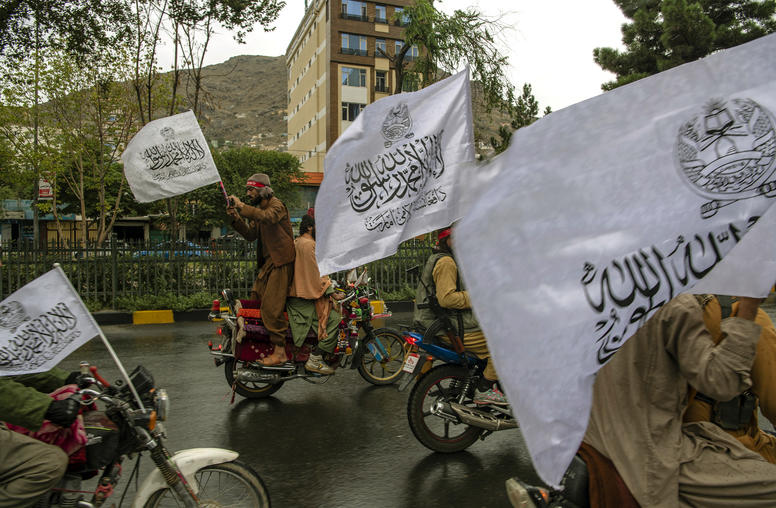
You Can’t Choose Your Neighbors: The Taliban’s Testy Regional Relationships
One year after the Taliban takeover of Afghanistan, its relations with its neighbors remain tepid as the region comes to grips with the reality that they now own a greater share of Afghanistan’s problems and the Taliban realize that neither recognition nor financial aid are going to come from the region easily.
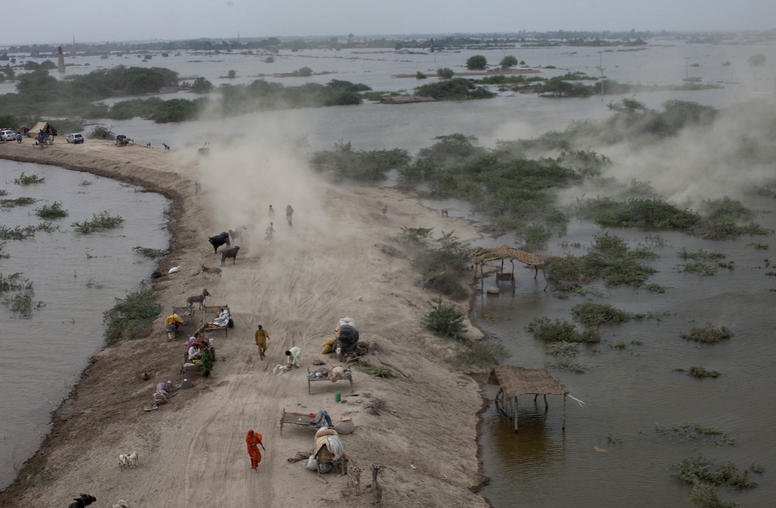
Pakistan’s Deadly Floods Come Amid Deluge of Crises
After experiencing its hottest months in 61 years in April and May, Pakistan has been hit by a “monsoon season on steroids,” according to U.N. chief Antonio Guterres. Pakistan has long been considered one of the most vulnerable countries to climate change in the world. Despite a history of intense floods, the country was ill-prepared for this year’s monsoon season. Intractable political and economic crises have hampered Pakistan’s capacity to address the ongoing fallout, particularly the worsening humanitarian crisis.
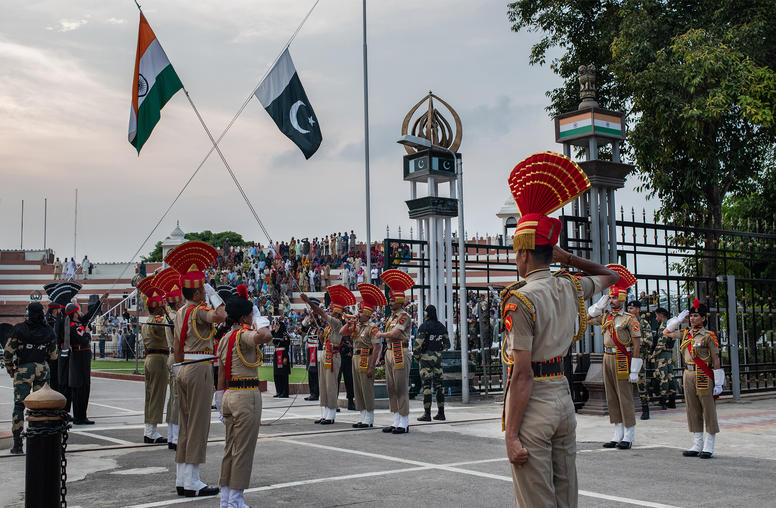
India and Pakistan at 75: Prospects for the Future
India and Pakistan, the two nuclear-armed giants of South Asia, each mark the 75th anniversary of their independence this week. In this article, USIP interviews Jalil Abbas Jilani and Maleeha Lodhi, former ambassadors of Pakistan to the United States, and Nirupama Rao and Arun Singh, former ambassadors of India to the United States, to get their perspectives on the main foreign policy and security challenges facing their respective countries, options for rapprochement, and the role of the United States and other global powers in supporting peace and stability in the region.